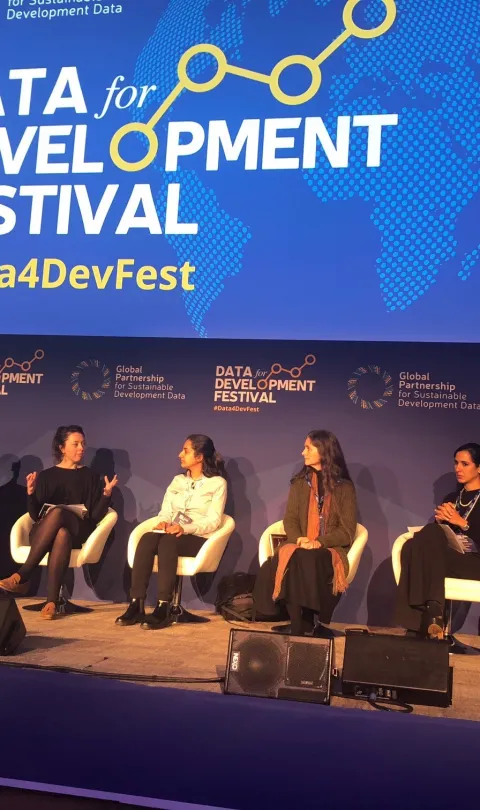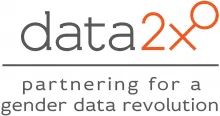March was a big month for the data revolution. It started with a gathering of representatives from national statistical offices (NSOs) from around the world for the 49th session of the United Nations Statistical Commission (UNSC), and ended with the first-ever Data for Development Festival, which brought together data producers, users, and actors from across the data community.
For Data2X, a highlight was the finding that gender data is a top priority for so many who interact with the data value chain. We heard this at UNSC in conversations about the importance of sex-disaggregation and data and how to measure unpaid care work as part of the SDG indicator framework, and at the Data Festival in the common refrain of “making the invisible visible,” as numerous attendees spoke about the importance of data on and for women and girls.
Three years into the 2030 Agenda for Sustainable Development, the pressure is on for the data community to demonstrate that data can inform real-world policy and decision-making that leads to better outcomes for people everywhere. In this spirit, several key questions emerged from UNSC and Data Fest.
Data: For what?
At UNSC and Data Fest, participants tackled the question of how to better link data to policy. At UNSC, discussions explored how to improve dialogue between data producers and users at national, regional, and international levels. Participants also discussed how to use new technology and data, coordinate the National Statistical System, and engage in the policymaking process. At Data Fest, participants articulated the importance of investing in and using data for decision-making. For example, at the Data Impact Storytelling session Data2X presented a case study from Chile, where better sex-disaggregated financial services data helped banks and policymakers understand the barriers to and improve women’s financial inclusion.
Data: About whom?
In both forums, there were discussions of how to improve data production to operationalize the Leave No One Behind principle, so datatruly reflects the lives of all groups and individuals. This is closely linked to the imperative to better meet the needs of data users who often require nuanced information in an understandable format. At UNSC, several sessions focused on how to capture data on groups that are often invisible in regular data collection, including migrants, refugees, and internally displaced populations, and on topics such as violence against women. There was also discussion of how to realize the promise of new types of data while guarding against gender and other biases. At Data Fest, participants dug into this question by considering how to empower communities to not only use the data collected about them to improve their own lives, but to also lead the effort by collecting their own data. It also considered how to make data more usable for policymakers.
Data: How to finance?
There is a sector-wide understanding that significant funding is needed to collect more and better data, build capacity, and better harmonize data systems. At UNSC, PARIS21 chaired a frank discussion about whether the SDGs (and their reporting burdens) have helped or hindered NSOs. They concluded that while the SDGs have raised the profile of statistics and provided a useful prioritization for indicators, there is still a need for funding. Attendees at UNSC also explored how to lower the cost of data production, improve funding mechanisms, and tap into new funding sources. And at Data Fest, a high-level panel on financing for data concluded that the data community needs to come together to better identify some clear requests for data financing. This is a particularly critical consideration for gender data, which is often viewed as too costly to produce. But with new technology and new approaches to data production, we have an opportunity to use the gender data field as a model for smart allocation of resources and a sound investment with clear results.
With March’s data revolution momentum at our backs and the increased attention on linking data to policy and demonstrating impact, Data2X is excited about the potential of the data system to improve the lives of women and girls. We look forward to exploring these questions and more at the World Data Forum later this year.

